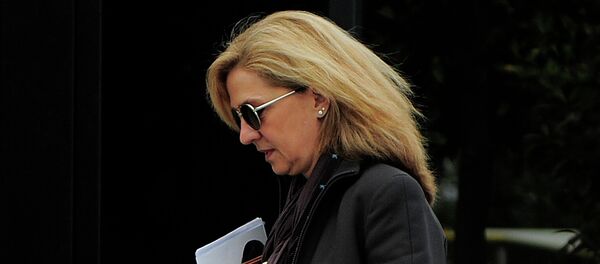He quotes Cecilia Malmstrom, the EU Commissioner for Home Affairs as saying that "there are no corruption-free zones in Europe; corruption in the 28 countries of the EU is costing European taxpayers about €120bn (£100bn) a year, or the equivalent of the union's annual budget."
Real Calculation of Damages
The figure announced by Malmstrom really raises eyebrows, but there are other calculations, Katin says.
He mentions the European Anti-Fraud Office (OLAF), which argues that the figure is just the tip of the iceberg, claiming that EU countries annually lose a whopping 323 billion euros from corruption-related damages.
Françoise Le Bai, head of the Directorate General of Justice in the structure of the European Commission says in turn that it is impossible to assess the real extent of corruption because of the authorities' reluctance to make public a whole array of corruption schemes. As a result, corruption crimes at the level of European funds are not investigated, which stimulates further criminal activity.
According to a recent opinion poll conducted by the agency Eurobarometer, about 76 percent of respondents believe that corruption is growing uncontrollably, and that it has increased significantly in the past three years.
The poll found that Greece remains the most corrupt country, with Italy, Spain, Lithuania and the Czech Republic coming on Greece's heels.
Ways of Resolution
More than ten organizations are grappling with the fight against corruption in Europe, and there are already concrete results. In 2013, about 67,800 cases were opened due to criminal codes dealing with "Bribe" and "Abuse of Office."
There are also examples of successful fights against corruption across the world. In Sweden, for instance, the government earlier placed the focus on increasing the salaries of civil servants who finally stopped taking bribes because they feared losing their high-salary jobs. Although the civil servants' salaries were then lowered, honesty remained a social norm among officials in Sweden.
Singapore can be mentioned as another example of an effective fight against corruption. Upon gaining independence in 1965, Singapore was a country with a very high level of corruption in all spheres of life. This is not the case with modern-day Singapore, where bribery has been stamped out. This was achieved thanks to the restriction of officials' powers, an increase in their salaries, the simplification of bureaucratic procedures, independence of the judiciary, and the introduction of stiff penalties for giving and receiving bribes. For example, the entire staff of a customs office was fired after just one employee was accused of taking bribe.
European Plan of Fight
The main directions of these reforms are as follows.
First and foremost, the EU is seeking greater openness in the work of public institutions, so that citizens can have free access to them.
Lawyers demand the development of a clear-cut code of behavior for public officials. High salaries for officials and their systematic increase should become necessary preconditions for the implementation of this code. Officials' property should be confiscated when bribery cases emerge.
In addition, the authors of the reforms call for the maximum simplification of administrative procedures.
Additionally, the authors say that political parties should only be financed by the state, rather than other sources and commercial structures.
The implementation of these proposals can add to combatting corruption in Europe. However, we should not forget about groups of experienced lobbyists in all national and pan-European organizations in EU countries, Katin concludes.
For example, there are up to three thousand offices, agencies, and bureaus of these groups in the Belgian capital Brussels. This army of qualified and experienced experts largely affects the decisions made by the European Commission, the European Parliament, the Council of Europe, the European Court of Justice and other agencies, which have an impact on the fate of Europe.




